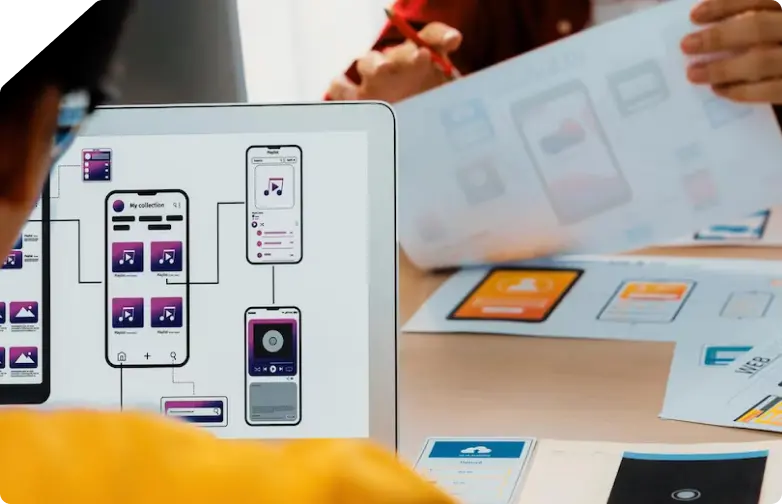Gaming is no longer just a form of entertainment; it has become a powerful force driving technological innovation and reshaping industries across the digital world. From advancements in artificial intelligence (AI) and virtual reality (VR) to its influence on education, healthcare, and marketing, gaming has transformed into a global phenomenon. This article explores the impact of gaming, its technological contributions, and the endless opportunities it offers in today’s digital landscape.
1. The Rise of Gaming in the Digital Era
Gaming has grown from simple arcade systems to a multi-billion-dollar global industry. Technological advancements, affordable gaming devices, and the internet have made games more accessible to people worldwide. Today, gaming is no longer limited to consoles or PCs; mobile gaming has democratized access, enabling users of all ages to participate.
In 2023, the global gaming market was valued at over $200 billion and is expected to continue growing rapidly. The rise of eSports and live-streaming platforms like Twitch and YouTube Gaming has created new revenue streams, expanding gaming’s reach into mainstream entertainment.
2. Gaming’s Technological Contributions to the Digital World
Artificial Intelligence in Gaming
AI has played a significant role in shaping gaming experiences. Non-playable characters (NPCs) now display human-like behaviors, adapting to player actions and enhancing immersion. Beyond gaming, AI technologies developed for games are used in simulations, robotics, and virtual assistants.
Virtual Reality and Augmented Reality
Gaming has been the testing ground for VR and AR technologies. VR headsets like Oculus Quest and AR games like Pokémon Go have revolutionized how users interact with digital environments. These technologies are now applied in education, real estate, and remote collaboration tools.
Cloud Gaming Revolution
Cloud gaming allows players to stream games directly without needing powerful hardware. Services like Google Stadia and Xbox Cloud Gaming are making gaming accessible to a broader audience. This innovation also drives advancements in internet infrastructure and data storage technologies.
Blockchain in Gaming
Blockchain technology is reshaping in-game economies by enabling secure transactions and digital ownership through NFTs (Non-Fungible Tokens). Players can now own, trade, and monetize in-game assets, creating new revenue opportunities.
3. Gaming’s Influence on Various Industries
Education and Skill Development
Gaming has proven to be a powerful educational tool. Serious games and gamified learning platforms make complex concepts engaging and accessible. Educational games teach problem-solving, critical thinking, and collaboration skills. Simulations and VR games are used for professional training in fields like aviation, healthcare, and engineering.
Healthcare and Therapy
Games are increasingly used for physical and mental therapy. VR games help rehabilitate stroke patients, while gaming apps assist with cognitive training for individuals with ADHD or dementia. Mental health-focused games provide stress relief and promote mindfulness, proving that gaming can be more than entertainment.
Marketing and Brand Engagement
Gaming offers unique opportunities for brands to engage with consumers. In-game advertising, branded experiences, and partnerships with gaming influencers have become effective marketing strategies. Games like Fortnite have collaborated with major brands to create interactive marketing campaigns that captivate global audiences.
Social Interaction and Community Building
Multiplayer games and online gaming communities foster social connections. Players from around the world collaborate, compete, and build friendships in virtual spaces. These social interactions often extend beyond the game, contributing to community building and global connectivity.
4. Opportunities and Challenges in the Gaming Industry
Opportunities:
- Career Growth: The gaming industry offers diverse career opportunities, from game design and development to marketing and eSports.
- Innovation: Gaming is a driving force behind cutting-edge technologies, opening doors to innovations that benefit other industries.
- Inclusivity: The growth of mobile and casual gaming has made the industry more inclusive, appealing to players of all demographics.
Challenges:
- Accessibility: Despite advancements, not everyone has access to gaming due to hardware costs or internet limitations.
- Addiction and Health Concerns: Excessive gaming can lead to health issues, necessitating responsible gaming practices and parental controls.
- Monetization Models: Pay-to-win models and microtransactions often face criticism for creating inequities among players.
5. The Future of Gaming in a Digital-First World
The future of gaming is incredibly promising. As technology continues to evolve, we can expect more immersive experiences powered by AI, VR, and AR. The integration of blockchain will create fairer in-game economies, while cloud gaming will make high-quality games accessible to all.
Gaming will also become more inclusive, breaking down barriers of age, location, and ability. It will continue influencing industries beyond entertainment, becoming a cornerstone of the digital world.






